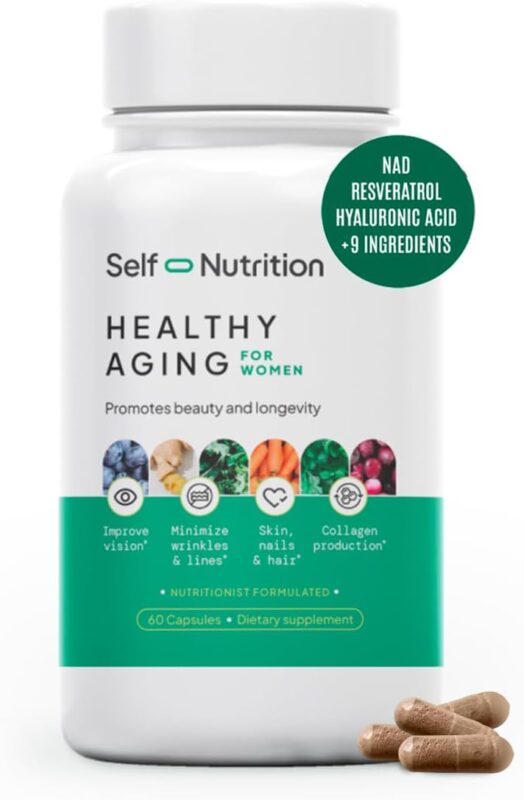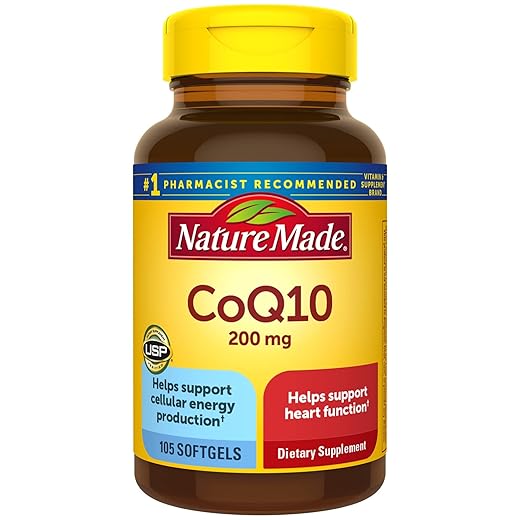Blogs
Lifestyle Changes to Maximize Antioxidant Benefits for Healthy Aging
Aging is a natural part of life, but you don’t have to feel like you’re just going through the motions. We all want to age gracefully and maintain our vitality, and one of the most effective ways to do that is by harnessing the power of antioxidants. These remarkable compounds help fight oxidative stress, which can lead to premature aging and various health issues. In this blog post, you’ll discover practical lifestyle changes that can easily fit into your daily routine, empowering you to maximize the benefits of antioxidants and embrace a healthier, more vibrant you as you age. Let’s explore how small adjustments can make a big difference in your journey toward healthy aging!
Understanding Antioxidants and Their Role in Aging
What Are Antioxidants?
Antioxidants are naturally occurring compounds that play a vital role in protecting our bodies from damage caused by free radicals. Free radicals are unstable molecules that can harm cells and lead to oxidative stress—a condition that occurs when there is an imbalance between free radicals and antioxidants in the body. This oxidative stress has been linked to various age-related diseases, including heart disease, cancer, and neurodegenerative disorders.
How Do Antioxidants Function in the Body?
Antioxidants neutralize free radicals by donating an electron, thus stabilizing these unstable molecules and preventing cellular damage. This action helps maintain the integrity of our cells, tissues, and organs, promoting overall health and longevity. Furthermore, antioxidants can help reduce inflammation, which is another contributing factor to aging and chronic diseases.
Types of Antioxidants
There are several types of antioxidants, each with unique properties and benefits:
- Vitamins:
- Vitamin C: Found in citrus fruits, strawberries, and bell peppers, Vitamin C is crucial for collagen production and helps to repair tissues.
- Vitamin E: Present in nuts, seeds, and leafy greens, Vitamin E is essential for immune function and skin health.
- Minerals:
- Selenium: This trace mineral can be found in Brazil nuts, fish, and whole grains. Selenium plays a key role in regulating metabolism and has been shown to reduce inflammation.
- Flavonoids:
- These are plant-based antioxidants found in foods like dark chocolate, berries, and green tea. Flavonoids have been associated with improved heart health and cognitive function.
The Connection Between Oxidative Stress, Cellular Damage, and Aging
Oxidative stress occurs when the production of free radicals exceeds the body’s ability to eliminate them. This imbalance can lead to cellular damage, which contributes to the aging process. Over time, damage to DNA, proteins, and lipids can accumulate, resulting in decreased cellular function and increased susceptibility to diseases.
Here are some key points about the relationship between oxidative stress and aging:
- Cellular Damage: Oxidative stress can lead to the aging of cells, impairing their ability to function properly.
- Chronic Diseases: Conditions such as Alzheimer’s disease, cardiovascular diseases, and certain cancers have been linked to oxidative stress.
- Inflammation: Chronic inflammation, often driven by oxidative stress, is a major contributor to age-related diseases.
Antioxidants and Longevity: The Research
Numerous studies have indicated a strong link between a diet rich in antioxidants and improved longevity, as well as a reduced risk of chronic diseases. Here are some noteworthy findings:
- A study published in the Journal of Nutrition found that individuals with higher antioxidant intake had a lower risk of mortality, particularly from cardiovascular diseases.
- Research in Free Radical Biology and Medicine highlighted that diets rich in fruits and vegetables, which are high in antioxidants, significantly correlated with reduced oxidative stress markers.
Practical Ways to Incorporate Antioxidants into Your Diet
To boost your antioxidant intake, consider incorporating the following foods and products into your daily routine:
| Food/Product | Antioxidant Type | Benefits |
|---|---|---|
| Oranges | Vitamin C | Boosts immune health |
| Almonds | Vitamin E | Supports skin health |
| Spinach | Flavonoids | Promotes heart health |
| Green Tea | Flavonoids | Enhances brain function |
| Wild Blueberries | Anthocyanins | Improves memory and cognition |
| Brazil Nuts | Selenium | Reduces inflammation |
Recommended Products to Enhance Antioxidant Intake
- Garden of Life Vitamin C: This whole food vitamin C supplement is derived from organic fruits and helps support your immune system.
- Now Foods Vitamin E: A potent antioxidant that promotes skin health and overall well-being.
- Harney & Sons Green Tea: Rich in flavonoids, this tea is a delicious way to incorporate antioxidants into your diet.
- Navitas Organics Cacao Powder: Perfect for smoothies or baking, cacao is loaded with flavonoids and has numerous health benefits.
- Nutiva Organic Raw Shelled Hemp Seeds: These seeds are rich in antioxidants and can easily be added to salads or yogurt.
By consciously including these antioxidant-rich foods and supplements in your lifestyle, you can help mitigate oxidative stress, support cellular health, and promote healthy aging.
Dietary Adjustments for Antioxidant Intake
Incorporating a variety of foods rich in antioxidants can be a delightful way to boost your overall health. Antioxidants help combat oxidative stress, reducing the risk of chronic diseases and promoting longevity. Here are some practical dietary changes that can enhance your antioxidant intake.
Colorful Fruits and Vegetables
One of the simplest ways to increase your antioxidant intake is by making your plate as colorful as possible! Aim to include a rainbow of fruits and vegetables in your meals.
Benefits of Specific Color Groups
- Berries: Blueberries, strawberries, and raspberries are packed with anthocyanins, which are powerful antioxidants. Brands like Driscoll’s offer fresh, organic berries that are both delicious and nutritious.
- Green Leafy Vegetables: Spinach, kale, and collard greens are high in vitamins A, C, and K, along with other antioxidants. Consider products like Earthbound Farm Organic Spinach for a convenient and nutritious option.
- Cruciferous Vegetables: Broccoli, Brussels sprouts, and cabbage are excellent sources of sulforaphane, which has potent antioxidant properties. Green Giant offers frozen options that are easy to prepare.
Practical Tips for Incorporation
- Smoothies: Blend a handful of Frozen Organic Mixed Berries from Wyman’s with spinach, banana, and almond milk for a delicious breakfast or snack.
- Salads: Create a colorful salad with mixed greens, cherry tomatoes, shredded carrots, and sliced bell peppers, topped with a vinaigrette made from extra virgin olive oil.
Whole Grains
Whole grains are not only a great source of fiber but also contain antioxidants that can help reduce inflammation. Here are some excellent choices:
- Quinoa: This gluten-free grain is rich in flavonoids, which are powerful antioxidants. Try Nature’s Earthly Choice Quinoa for a quick and easy side dish.
- Brown Rice: Packed with vitamins and minerals, brown rice offers a nutty flavor and chewy texture. Brands like Lundberg Family Farms provide high-quality options.
- Oats: Rolled or steel-cut oats are rich in avenanthramides, antioxidants unique to oats. Bob’s Red Mill Organic Rolled Oats make for a wholesome breakfast choice.
Quick Recipe Idea
- Overnight Oats: Combine Bob’s Red Mill Organic Rolled Oats with almond milk, chia seeds, and top with mixed berries for a nutritious breakfast ready to go.
Nuts and Seeds
Nuts and seeds are nutrient-dense and can be a fantastic addition to your antioxidant-rich diet.
- Walnuts: High in omega-3 fatty acids and polyphenols, walnuts can be a great snack. Look for California Walnuts for a premium product.
- Chia Seeds: These tiny seeds are packed with antioxidants and omega-3s. Nutiva Organic Chia Seeds are a great choice for smoothies and salads.
- Almonds: Rich in vitamin E, almonds are a delicious and convenient snack. Blue Diamond Almonds offers a variety of flavored options.
Snack Ideas
- Trail Mix: Create a homemade trail mix using California Walnuts, Blue Diamond Almonds, and dried cranberries for a tasty, on-the-go snack.
- Chia Pudding: Mix chia seeds with coconut milk and let them sit overnight. In the morning, top with fresh fruit for a delightful breakfast.
Hydration and Herbal Teas
Staying hydrated is crucial for overall health and can aid in optimizing antioxidant levels. Herbal teas are a fantastic way to hydrate while reaping antioxidant benefits.
Antioxidant-Rich Herbal Teas
- Green Tea: Rich in catechins, green tea is a powerhouse of antioxidants. Brands like Lupicia offer a variety of flavorful loose-leaf options.
- Rooibos Tea: Caffeine-free and rich in antioxidants, Typhoo Rooibos Tea is a great alternative for evening relaxation.
- Hibiscus Tea: Known for its vibrant color and tangy flavor, Stash Tea’s Hibiscus is high in vitamin C and antioxidants.
Infusing Spices into Your Diet
Spices not only enhance flavor but also provide significant health benefits. Incorporate the following into your meals:
- Turmeric: Contains curcumin, a potent antioxidant. Use Simply Organic Turmeric in curries, soups, or smoothies.
- Cinnamon: This spice is known for its anti-inflammatory properties. McCormick Ground Cinnamon can be sprinkled on oatmeal, yogurt, or fruit.
Summary of Key Foods and Their Benefits
| Food Category | Key Foods | Antioxidant Benefits |
|---|---|---|
| Fruits | Blueberries, Strawberries | High in anthocyanins |
| Vegetables | Spinach, Kale | Rich in vitamins A, C, K, and other antioxidants |
| Whole Grains | Quinoa, Brown Rice | Contains flavonoids and other beneficial compounds |
| Nuts and Seeds | Walnuts, Chia Seeds | High in omega-3s, vitamin E, and polyphenols |
| Herbal Teas | Green Tea, Rooibos | Rich in catechins, caffeine-free options |
| Spices | Turmeric, Cinnamon | Anti-inflammatory properties and antioxidant-rich |
By embracing these dietary adjustments, you can easily enhance your antioxidant intake while enjoying a variety of delicious foods!
Embracing Simple Shifts for Lasting Wellness
In conclusion, embracing a lifestyle that maximizes the benefits of antioxidants can play a significant role in promoting healthy aging. By incorporating nutrient-rich foods, regular physical activity, and mindful lifestyle choices, you can enhance your body’s natural defenses against oxidative stress. Remember, these changes don’t have to happen overnight; adopting them gradually will make them more sustainable. It’s also wise to consult with healthcare professionals for personalized advice tailored to your unique needs. By taking a holistic approach that combines diet, exercise, and lifestyle modifications, you can empower yourself to enjoy a healthier, more vibrant life as you age.












This is such a great read! I never thought about how lifestyle changes could boost antioxidants!
Thanks for sharing these insights! Gonna share this with my family.
Can’t wait to try out some of these recipes you mentioned! They sound delicious!
Does anyone have suggestions for easy workouts that help with antioxidant levels?
It’s amazing how small changes can make such a big difference in aging healthily!
Love the tips on food choices! Definitely going to add more berries to my diet.
I wish I had known about these changes earlier! Better late than never, I guess.